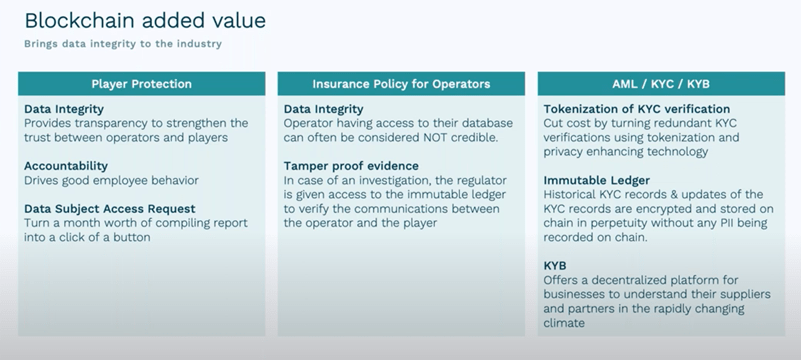Blggzz: Your Daily Dose of Insight
Stay updated with the latest news and informative articles.
Decentralized Player Protection: Where Safety Meets Freedom
Discover how decentralized technology empowers player safety and freedom in gaming. Unleash your potential—join the revolution today!
Understanding Decentralized Player Protection: A Comprehensive Guide
Decentralized player protection is an emerging concept in the world of online gaming that seeks to enhance the security and fairness of digital platforms. Traditional gaming environments often rely on centralized systems, which can expose players to risks such as data breaches or unfair practices. Decentralization addresses these risks by utilizing blockchain technology to create transparent, tamper-proof systems. This ensures that players can trust the integrity of their gaming experiences and feel secure in their transactions. By understanding how decentralized player protection works, players can make informed choices when engaging with online platforms.
Key components of decentralized player protection include:
- Transparency: All gaming activities are recorded on a public ledger, allowing players to verify fairness.
- Smart Contracts: Automated agreements that execute actions when predefined conditions are met, eliminating the need for intermediaries.
- User Sovereignty: Players have control over their data and assets, reducing reliance on centralized authorities.

Counter-Strike is a highly popular tactical first-person shooter game that emphasizes team-based gameplay and strategic planning. Players can choose to play as either terrorists or counter-terrorists, engaging in various objective-based scenarios. For those interested in gaming promotions, you can check out this stake promo code to enhance your gaming experience.
How Decentralization Enhances Player Safety in Online Gaming
Decentralization has emerged as a game-changer in the realm of online gaming, particularly when it comes to player safety. Traditional gaming platforms often rely on central servers, which are vulnerable to hacks, data breaches, and fraud. In contrast, decentralized gaming networks utilize blockchain technology, ensuring that player information is securely stored and transactions are transparent. This shift not only reduces the risk of data theft but also enhances player trust, as they can verify the integrity of their interactions within the game without relying on a centralized authority.
Moreover, decentralization empowers players by giving them greater control over their in-game assets and identities. Players can participate in decentralized ecosystems where player safety is prioritized through smart contracts that enforce rules automatically. This reduces the likelihood of unethical practices, such as cheating or account stealing. As a result, decentralized gaming environments foster a more secure and fair atmosphere, where players can focus on enjoying their gameplay experience without the constant worry of being exploited.
What Are the Benefits of Decentralized Player Protection Systems?
Decentralized player protection systems offer a range of benefits that can significantly enhance the gaming experience. Unlike traditional centralized systems, they empower players by providing greater transparency and control over their gaming data and interactions. This decentralization ensures that players are not at the mercy of a single entity, which can lead to improved fairness and security. With decentralization, players can access their transaction history and personal information without the undue influence of centralized authorities, fostering a sense of trust and reliability in the gaming ecosystem.
Moreover, the integration of decentralized player protection systems promotes inclusivity and accessibility. By eliminating barriers and providing universal access, these systems allow players from all backgrounds to enjoy online gaming without fear of exploitation or security breaches. Additionally, decentralized platforms often utilize advanced encryption methods, enhancing the privacy of players' data. Overall, the shift towards decentralized models not only benefits individual players but also contributes to a more robust and trustworthy gaming environment, setting a new standard for player protection across the industry.